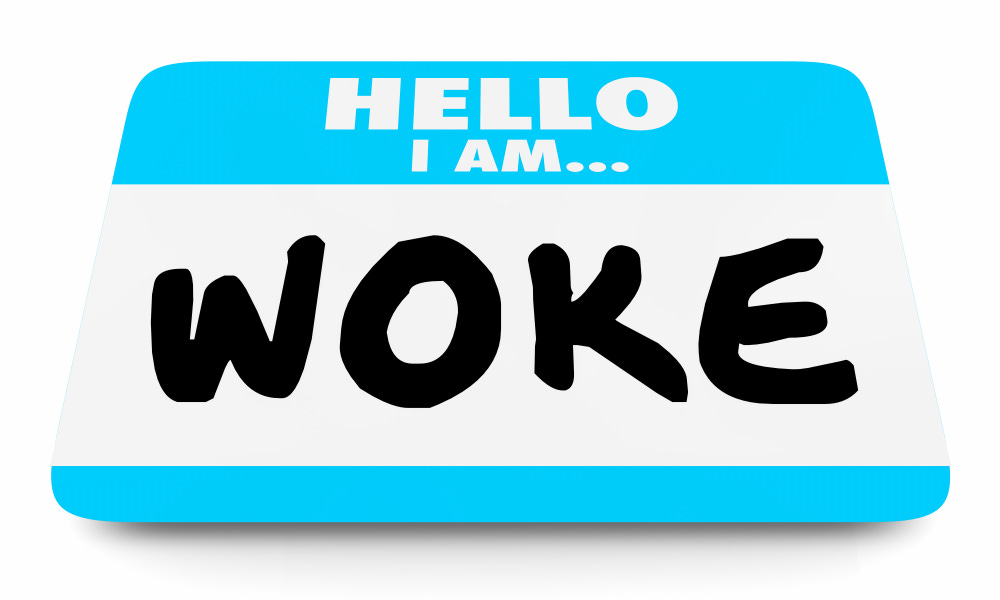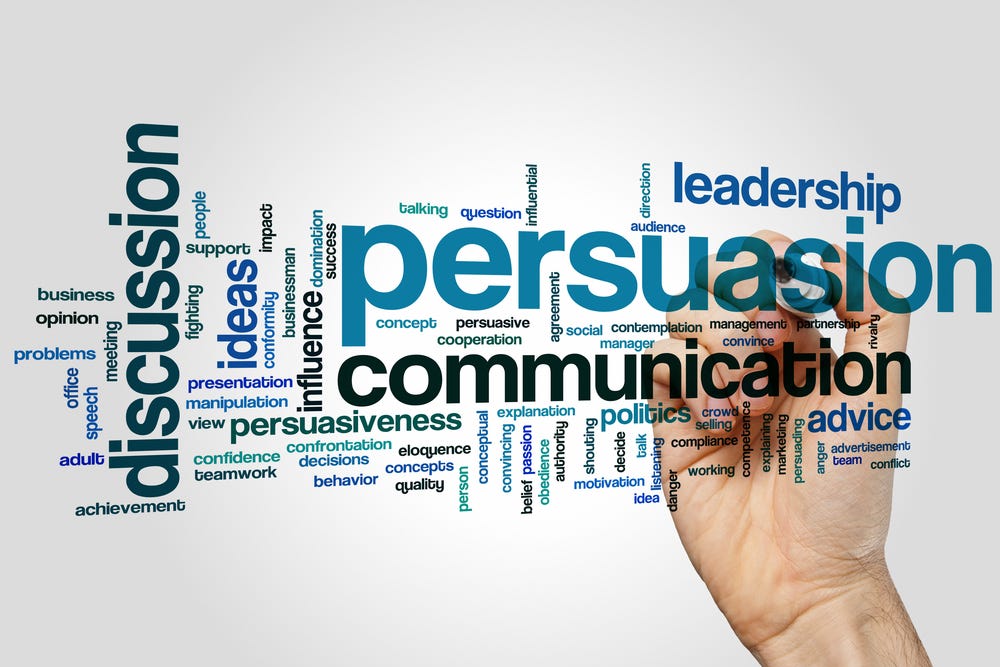E-Pluribus | October 4, 2021
What is "wokeness" anyway, the real-life consequences of cancellation, and what the Nicki Minaj kerfuffle can tell us about persuasion.
A round up of the latest and best writing and musings on the rise of illiberalism in the public discourse:
Cathy Young: Defining "Wokeness"
Given the glibness with which “woke” can be tossed around, Cathy Young at Arc Digital takes a deep dive into the contemporary concept of what is more formally termed social justice. Despite the inclusion of “justice” in the term, Young argues that too often the practical outcome involves injustice due to the tendency of its advocates to suppress conflicting ideas and intimidate dissenters.
One reason “wokeness” or “social justice” has fairly wide appeal, at least in its more moderate guises, is that many of its ideas contain partial truths. Racism, sexism, and other bigotries have an ugly history and are still with us, and we should strive to overcome them. If you advocate for a minority group, you should also favor human rights for other groups. Small indignities based on membership in a traditionally disadvantaged group can have a damaging effect, especially if they accumulate. Entertainment, literature, and everyday language can normalize insidious biases, accidentally or not. Humor that feels innocuous when directed at the majority (“All these white girls look alike!”) can become odiously bigoted when it “punches down” at a minority that has been the target of prejudice and discrimination.
However, Social Justice takes such ideas to bizarre extremes increasingly detached from common sense and reality.
It’s one thing to say that racism, sexism, and other prejudices are still a problem; it’s another to claim that white supremacy and misogyny are omnipresent and life must be a constant struggle session to escape their clutches. It’s one thing to say that we should avoid racial slights; it’s another to demand constant vigilance against inadvertent “microaggressions” (like asking an immigrant, “Where are you from”?) and aggressive scrutiny of language for hidden offenses (like “sell someone down the river,” which originally referred to selling slaves). It’s one thing to acknowledge that Gone with the Wind is a hideously racist book, another to condemn a book because of a character’s racist thoughts. It’s one thing to say that mocking someone’s tweet as “typical white bullshit” is not as bad as tweeting anti-black invective; it’s another to normalize white-bashing as mere rhetorical attacks on white supremacy.
Read it all.
Gordon Klein: Why I Am Suing UCLA
Although Friday’s Around Twitter included a link to this piece at Bari Weiss’s Substack by Gordon Kline, we are featuring it here today also. Kline’s experience illustrates the secondary effects of a cancel culture incident and also explains why Klein is following up with a lawsuit. Far from just a simple matter of some mean tweets and fewer social media followers, sometimes a cancellation can threaten personal safety and even livelihoods.
My saga — which nearly led to my firing — began on the morning of June 2, 2020, when a non-black student in my class on tax principles and law emailed me to ask that I grade his black classmates with greater “leniency” than others in the class. “We are writing to express our tremendous concern about the impact that this final exam and project will have on the mental and physical health of our Black classmates,” the student wrote. (There was no project in this class, and it was unclear to me who the “we” in this case was. I suspected the student simply used a form letter he found online and neglected to change the subject.) “The unjust murders of Ahmaud Arbery, Breonna Taylor and George Floyd, the life-threatening actions of Amy Cooper and the violent conduct of the [University of California Police Department] have led to fear and anxiety which is further compounded by the disproportionate effect of COVID-19 on the Black community. As we approach finals week, we recognize that these conditions place Black students at an unfair academic disadvantage due to traumatic circumstances out of their control.”
[…]
Without any deliberation I was aware of, [Dean Antonio] Bernardo suspended and banned me from campus.
[…]
Less than three weeks after this whole thing blew up, I was reinstated. But this story is not over.
You see, most of my income comes not from teaching at UCLA but from consulting to law firms and other corporations. Several of those firms dropped me after they got wind that I’d been suspended — the better to put distance between themselves and a “racist.” That cost me the lion’s share of my annual income. The students involved in this escapade may have moved on to other causes. I have not. I’m not sure I ever will.
As a result, I have just filed a lawsuit against the University of California system. No employee should ever cower in fear of his employer’s power to silence legitimate points of view, and no society should tolerate government-sponsored autocrats violating constitutional mandates.
Read it all here.
ICYMI: Liz Wolfe: Nicki Minaj's Vaccine Hesitancy Tweets Show Value of Persuasion Over Federal Mandates
When Nicki Manaj’s Tweet blew up the internet a few weeks ago, many responses seemed more focused on milking the incident for laughs over Minaj’s graphic, if indelicate, description of the story rather than learning a lesson. Liz Wolfe at Reason, however, sees an opportunity to compare efforts aimed at compulsion versus persuasion when it comes to vaccines and which approach will be more successful in the long run.
Though Minaj is all over the place with her objections to personally getting vaccinated and choosing not to attend the Met Gala, she's right to emphasize the importance of allowing adults to make their own choices free from coercive, top-down government measures—and the importance of allowing people to make their own private medical decisions on their own timelines.
If Minaj does ultimately choose to get vaccinated, as she indicates is likely, it will be because the prospect of losing out on the money and joy reaped by touring is a price she's decided she is not willing to pay. But she's the one who can judge those trade-offs for herself, and the people she does business with are the ones who can decide how much risk of viral spread they're willing to accept in venues, recording studios, and the like.
Though the White House obviously won't offer to get on the phone with every American who has vaccine concerns—just those who have 157 million Instagram followers—their response to the testicle-deformation kerfuffle indicates that they still view persuasion as a useful tactic; perhaps they should've even tried persuasion for longer, staving off the impulse to impose federal mandates and incur the highly predictable backlash. For people whose vaccine hesitancy is rooted in distrust of the federal government, coercive measures may be effective in the short term, but are likely to squander trust in the long run (while incentivizing some audacious people to use fakes to skirt the rules).
Read the whole thing.
Around Twitter
A thread from Princeton professor Robert P. George decrying MIT’s decision to disinvite University of Chicago’s Dorian Abbot over his views on “diversity, equity, and inclusion”. Click through for all nine tweets:
Abbot has responded also:
A short back and forth between Glenn Greenwald and the New York Times’ Joan Coaston regarding social media companies terms of service and political speech:
And finally, via Jeffrey Sachs, Acadia University lecturer, how some school districts seem to be flailing in their efforts to push back against Critical Race Theory with untenable, poorly designed solutions:













So “white girls” have not been a target of prejudice and discrimination? I’m not a big fan of “wokeness” but one of the groups being most marginalized by wokeness is women even if they’re white. Maybe ejaculating people need to be more aware of that!